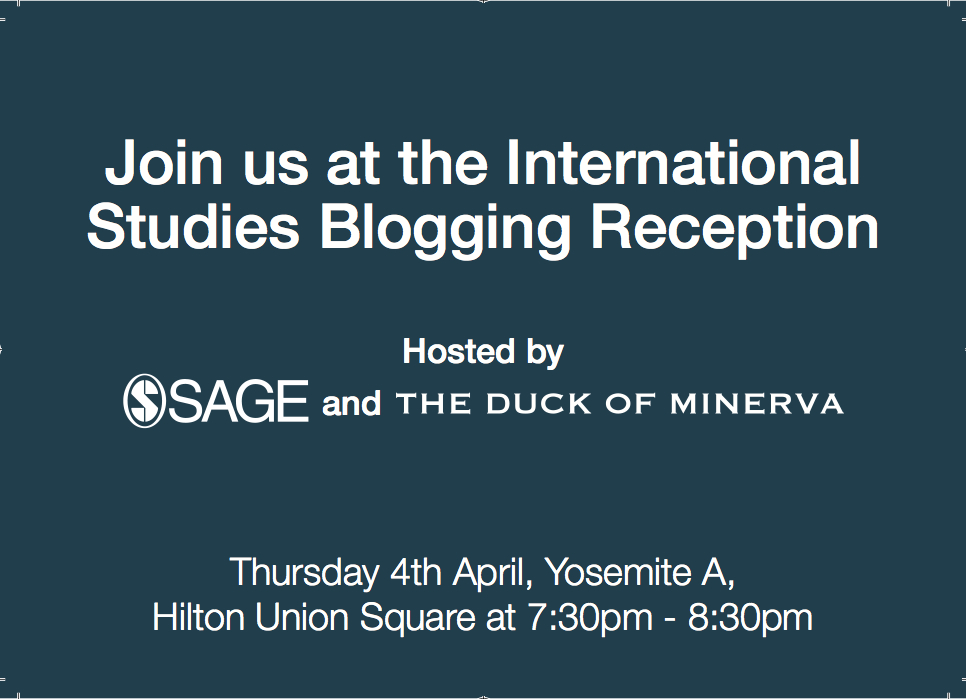 Casy Hogle reports on a World Peace Foundation panel on public-advocacy campaigns, which featured the Laura Sey and Amanda Taub.
Casy Hogle reports on a World Peace Foundation panel on public-advocacy campaigns, which featured the Laura Sey and Amanda Taub.- Edward Hugh on the decline of Portugal.
- The costs of the “eating local” movement: agriculture in the “global south.”
- Daniel Martin Varisco: “life without honor.”
- Adam Eluks: “a rack city on a hill: unsolicited advice to landpower and seapower.”
And also:
- The Disorder of Things has a new forum on “critical methodological and narrative developments in IR.”
- Andrew Liptak discusses John Campbell, Astounding magazine, and the “golden age” of science fiction.
- This is my academic life.
Daniel H. Nexon is a Professor at Georgetown University, with a joint appointment in the Department of Government and the School of Foreign Service. His academic work focuses on international-relations theory, power politics, empires and hegemony, and international order. He has also written on the relationship between popular culture and world politics.
He has held fellowships at Stanford University's Center for International Security and Cooperation and at the Ohio State University's Mershon Center for International Studies. During 2009-2010 he worked in the U.S. Department of Defense as a Council on Foreign Relations International Affairs Fellow. He was the lead editor of International Studies Quarterly from 2014-2018.
He is the author of The Struggle for Power in Early Modern Europe: Religious Conflict, Dynastic Empires, and International Change (Princeton University Press, 2009), which won the International Security Studies Section (ISSS) Best Book Award for 2010, and co-author of Exit from Hegemony: The Unraveling of the American Global Order (Oxford University Press, 2020). His articles have appeared in a lot of places. He is the founder of the The Duck of Minerva, and also blogs at Lawyers, Guns and Money.


Glanced through just now Adam Elkus’s “rack city on a hill”, linked here. (The ‘rack city’ thing is a rap reference — I can’t be bothered to read the lyrics right now.) What I want to note is a line at the end where he says “massive [U.S.] retrenchment is sure to have major disruptive effects on the intl system” or words to that effect. Note the wording is sure to have — as if this were some kind of natural, physical law. As in “drop a rock from a height, and it’s sure to gain acceleration as it falls” or whatever. (I’m not a scientist, obviously, so substitute something else if that doesn’t work.)
LFC, I’m paraphrasing Winekoff’s post to that effect. Take it up with him. Not that “disruptive” in this term is not entirely negative, but simply effect-based.